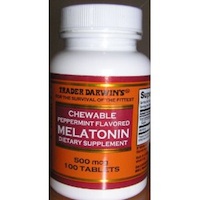

It works synergistically with gamma-aminobutyric acid, commonly referred to as GABA, an amino acid produced naturally in the brain that acts as an inhibitory neurotransmitter, blocking certain brain signals and decreasing activity in your nervous system. Research shows (5-9) that valerian root extract (which is used primarily in supplement form) plays a role prior to and during N1 (first sleep stage) when the body needs to feel calm, relaxed, and drowsy in order to move to N2 (second sleep stage). In addition to “Foods that may help with sleep,” for a more comprehensive sleep plan, check out our post: 12 Steps to Better Sleep.Valeriana officinalis, commonly known as valerian, is an herb native to Europe and Asia whose roots have been used since ancient Greek and Roman times as a sleep promoter. If you suffer from these conditions, try eating almonds daily or ask your dietitian/physician if taking a daily magnesium supplement may be helpful. Low magnesium levels are associated with symptoms of restless legs and sleep difficulty.

Almonds: Almonds may help with sleep due to their high magnesium content.Their antioxidant power of cherries may help promote sleep by minimizing oxidative damage. The benefits of cherries are likely related to their high concentration of melatonin and antioxidants. Tart Cherries: Several smaller studies have shown that a supplement of tart cherry juice increased melatonin, total sleep time and sleep efficiency compared to a placebo.They also contain their own source of melatonin, another sleep promoting hormone. This “sleep inducing” amino acid when taken one to two hours before bed may help you fall asleep faster. Walnuts: Walnuts contain an amino acid tryptophan.A 2017 study found that elderly patients who took a supplement chamomile extract slept significantly better than those who did not take the chamomile extract. A 2016 study of new mothers found that women who drank chamomile tea every day for two weeks slept better and tended to have fewer symptoms of depression compared to women who didn’t drink the chamomile tea. Chamomile Tea: While the sleep benefits of chamomile tea are sparse, there is still good reason to include this tea in your evening routine.The optimal time to enjoy them is 2 hours before bed. Below, are a few foods I included in our Sleepytime Bites. Is it too good to be true? Could the right foods help us get a better night’s sleep? Research shows some promise. Foods That Help With Sleep: Sleepytime Bites It’s the first place I start when I work privately with my clients. It has the largest impact on our mental and physical health.

Sleep, in my opinion, is the number one way we can care for ourselves. Our Status of SleepĪccording to the National Sleep Foundation, 1/3 of adults get an average 6 hours of sleep or less per night. Hence, my quest to create my own tasty sleep-inducing food at a fraction of a cost. Sadly, the minute amount of caffeine in chocolate will keep me up. They were extremely pricey, tasted like chalk, and contained chocolate.
DOES SLEEPYTIME TEA HAVE MELATONIN FULL
Too good to be true? I recently stumbled upon these GoodNight Bites in review of the top food trends of 2019: “foods that address sleep.” Even with a full night’s sleep I still felt cranky about this product.


 0 kommentar(er)
0 kommentar(er)
